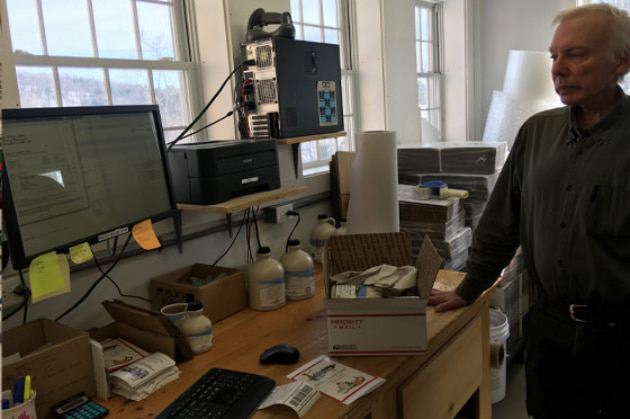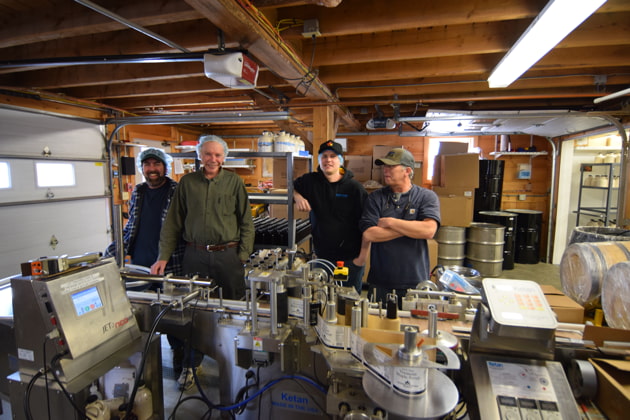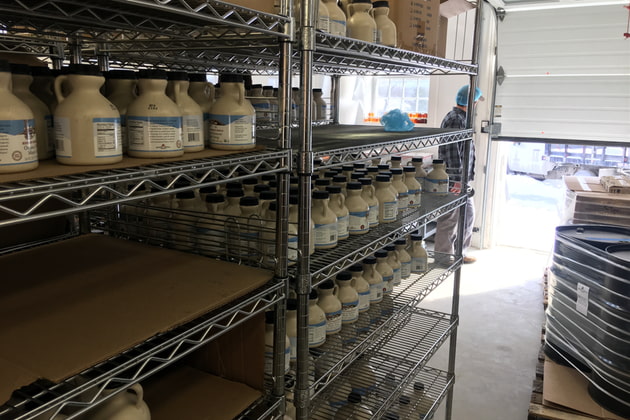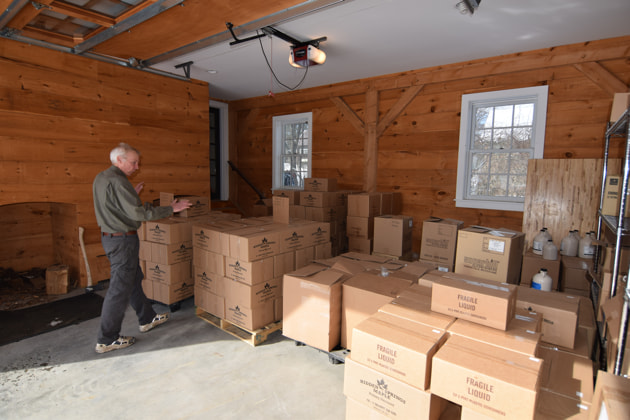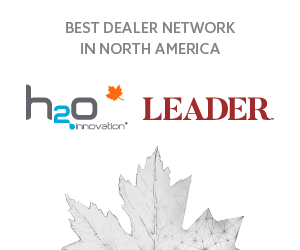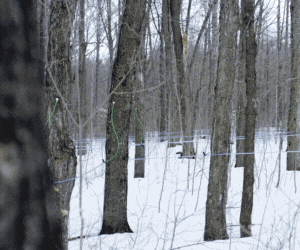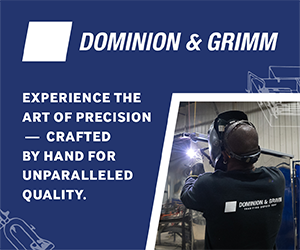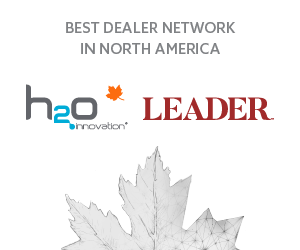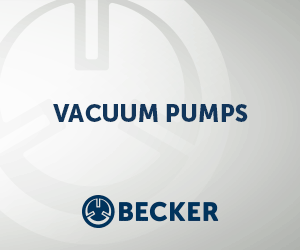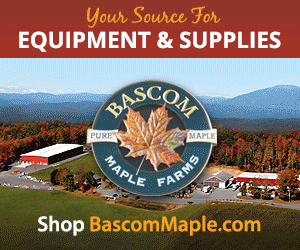Sap & Syrup
Tips from an expert: Selling on Amazon
Vermont sugarhouse shares secrets of online success
By PAUL POST, PETER GREGG | OCTOBER 9, 2018
PUTNEY, Vt.—Peter Cooper-Ellis spent more than three decades in the Silicon Valley, where he worked at four different successful software start-up companies.
But the Brattleboro, Vt. native never lost his love for Mother Nature's sweetest natural product. His family has been in the maple business for more than a half century.
So he combined his passion for the industry and technology to start Putney, Vt.-based Hidden Springs Maple. At first, he ran the company remotely, with help from family members, while still living in California, before coming home to the Green Mountain State two-and-a-half years ago.
Cooper-Ellis explained how his firm has grown and how sugar makers can expand their own sales, in the workshop, Strategies for Online Marketing of Maple Products at the 2018 Vermont Maple Conference & Tradeshow last winter.
"What we're selling here is an experience of Vermont," he said. "We have a huge value in the brand of Vermont. We try to leverage that. Many customers have been to Vermont and they want to stay in touch with it."
What better way than with an online purchase of maple product?
"Our mission is to use the power of the Internet to sell maple," he said. "That's what we've been doing."
Hidden Springs began packaging and shipping in 2009 and opened a Putney farm store, which generates 10 percent of sales, a year later. Until 2012, the company was primarily marketing to individuals and restaurants, and began selling wholesale in 2015, which today accounts for 25 percent of the firm's business with goods sold to big box stores, restaurants and maple cooperatives.
The Internet, however, produces for the vast majority of Hidden Springs revenue stream as 54 percent comes through Amazon, while 13 percent is generated by the firms website. The company, in addition to what it produces, buys syrup from 20 small, family-run sugarhouses in Vermont.
"Our mission is to use the power of the Internet to take it and sell it," Cooper-Ellis said.
The Hidden Springs label depicts his farm at maple season, which Cooper-Ellis describes as the firm's hero image. It's a classic Vermont scene -- a large red, early American farmhouse; split-level barn; and tall sturdy sugar maple tree out front, with a bucket hanging on its side.
Cooper-Ellis told how this attractive setting has been viewed worldwide, using 21st Century e-commerce techniques, to build a profitable business. A website, with help from a skilled graphic designer, should be appealing and make people want to click deeper into it.
"What's the story you want to tell?" he said. "You're competing with people much larger than you. As a small guy, you've really got to sell your Vermont experience. What makes you different?"
However, simply putting up a website isn't enough.
Amazon is the largest store in the world, with $275 billion in sales per year, Cooper-Ellis said. Every second three or four items are sold on Amazon.
"The scale of what's available to you, if you know how to get a toe-hold, is massive. You can actually have a storefront on Amazon where your products are all shown," he said.
Cooper-Ellis said Amazon Vendor Central is just like selling wholesale to a grocery store, but without a broker or distributor. Once the maple is sold, Amazon controls and sets the price.
"The margins are low, but we can make money doing it," he said. "If nothing else it gives you exposure to a huge market. Putting a jug in people's hands. Thats the value there."
However, simply being on Amazon isnt enough, either, because everybody's figured out now that you've got to be on Amazon, Cooper-Ellis said.
"Page rank is a hugely important metric. If you're up on the first page you're going to sell stuff. Reviews on Amazon are critically important. The more reviews you have on Amazon, the more people will trust you have product they want," he said.
There are a variety of strengths involved with selling on Amazon such as high traffic and fast sales growth, minimal food safety regulations, a lower barrier to entry, not having tp deal with brokers and distributors, and Amazon value shipping rates.
The drawbacks are that its tough to get noticed without a good page rank, Amazon offers no support, margins are low, plus there are cooperative and marketing fees.
But when used properly, it's an invaluable marketing tool in today's Digital Age. Cooper-Ellis also told how customers can be developed with social media such as Facebook. Telling interesting stories about the business and industry help build the Internet community.
He also stressed the importance of using analytics for tracking people who visit his firm's website.
"I know exactly where are customers are coming from," he said. "You can see exactly what they're doing."
The majority of out-of-state sales are from New York, Florida, Texas and California.
In addition, Hidden Springs Maple has an email newsletter that goes to 15,000 people
"It should be meaningful, useful, with a picture, and say something short and sweet, along with a customer service number to call," Cooper-Ellis said. "Plus, give them something special like a coupon or a deal on a half-gallon of syrup. We do three or four of these per year. They're a big part of our business. Every time we send out an email we get 1,000 orders within 24 hours."
"The key to all types of e-commerce is perseverance," Cooper-Ellis said.
"To make any of this stuff work you've got to stick with it," he said. "Develop a brand and tagline and stay true to it. Think about your web presence and your physical presence in Vermont, and how you tell that story."















